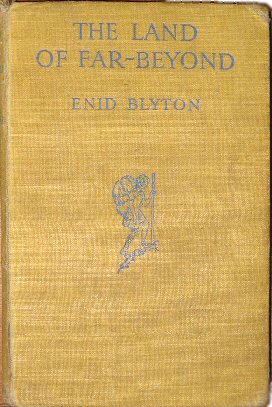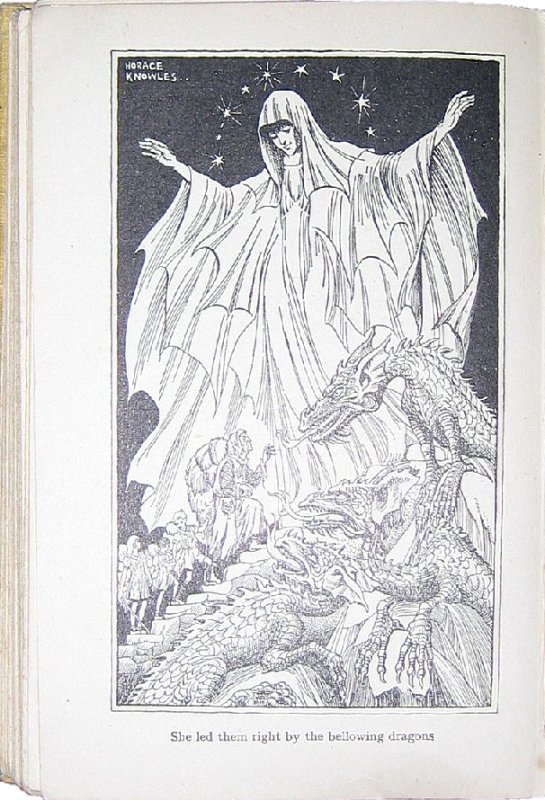 “Little Women” features several references, specific and oblique, to “A Pilgrim’s Progress.” Reading the former to the children spawned a request for the latter, to which the ungracious response was “never again in this lifetime!”
“Little Women” features several references, specific and oblique, to “A Pilgrim’s Progress.” Reading the former to the children spawned a request for the latter, to which the ungracious response was “never again in this lifetime!”
However, I did remember having a similar reaction to Little Women as a child, and being absolutely delighted when this comparable story by Enid Blyton came my way. Fortunately, we have that copy in the family still; sadly out of print, they tend to retail at about thirty-five pounds…
It’s a great adventure/quest story for kids. The book starts in the City of Turmoil, where vice is the order of the day, until the Wanderer passes through… Gathering a small crowd, he mourns the burden of wrong-doing which each inhabitant carries in his heart. Challenged, Wanderer causes the burdens to be made corporeal, great loads attached inextricably to each person’s back. The only way to remove the burdens is to travel across dangerous terrain to the City of Happiness, in the Land of Far-Beyond. Along the way they encounter many “strange people” who will try to divert them from the narrow path; of the ten who start out, some will fall by the wayside…
Enid Blyton, whilst acknowledging the influence of Bunyan, modestly rejects any comparison to his “grand old book.” Having said that, the parallels are unmistakable; the journey from sin, through temptation, to a state of grace. I am not hell-bent on brainwashing my kids. This book dwells on Christian ethics rather than theology; good stuff which I was happy for the children to assimilate.
The criticisms which usually fall to Enid Blyton’s lot tend to apply to a lesser extent in this story. Admittedly, the plot is wholly linear, and the narrative; likewise. Racism, happily, is absent. More by luck than judgement, one suspects. The nature of the characterisation in this book has the welcome side effect of also removing the gender stereotyping which can often give great offence in Blyton’s work!
The characters serve to represent virtues and vices. Whilst you might expect the characters, even by Blyton standards, to be extraordinarily one-dimensional under these circumstances, this is not the case. The chief adult character, Mr Scornful, could be seen to represent adults as a whole. Unlike the adults of Enid Blyton adventure/mystery stories, who are usually either good but disinterested, or bad and incompetent, Mr Scornful has a more subtle nature. There is actual character development as his good qualities and bad battle it out.
For my children, the best part of the adventure was guessing the names of the characters and items which would get our protagonists in and out of trouble. For instance, after Flatter leads the party into the Meadows of Conceit, it is Common-sense who leads them out on his planks of Humility… It may sound like the grossest kind of sermonising but my girls loved it!
I was pleased with the ambivalent nature of the ending which drew heavily on biblical influences. Whilst children are suffered to come unto Him, it is harder (but maybe not impossible) for a rich man (and an adult) to enter the Kingdom of Heaven…
Enid Blyton comes in for such a lot of criticism, but she is still entertaining children today, where the great children’s classics, unfortunately, do not appear to do so. As for the Land of Far-Beyond, it led me to read the Pilgrim’s Progress and, although I never thought to read that particular volume again, I find my appetite whetted…

